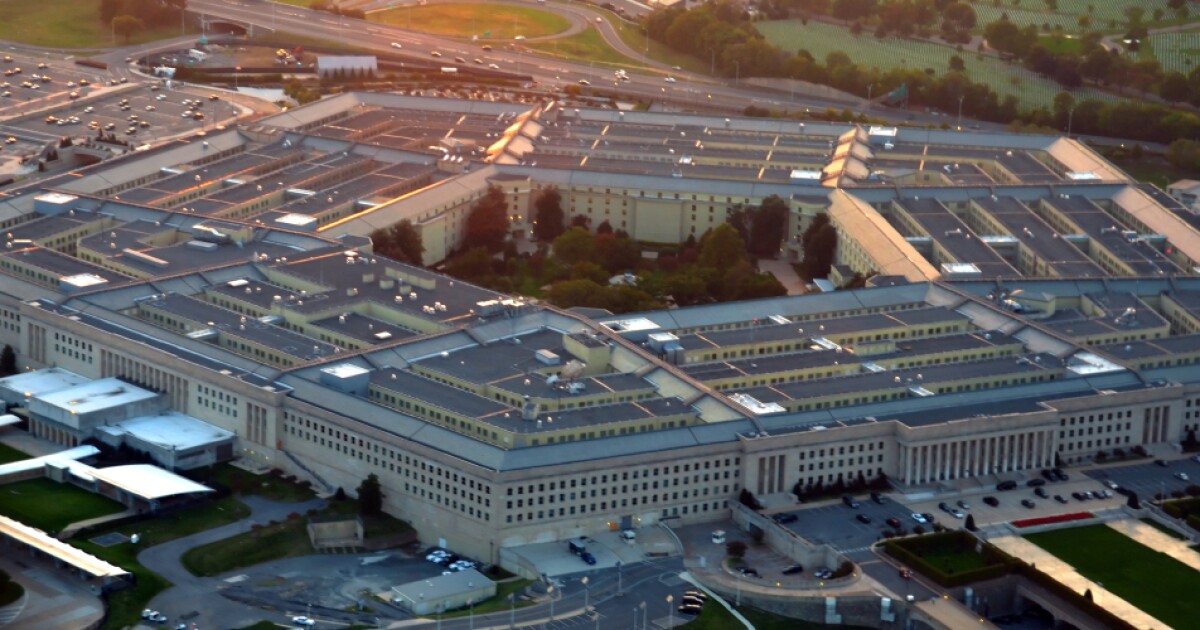

Calls to repeal the military’s vaccine mandate through a must-pass defense spending bill are picking up steam despite Democrats’ resistance to changing the requirements.
A growing number of Republican lawmakers are lobbying for the National Defense Authorization Act to include a repeal of the vaccine requirement as the deadline for advancing the legislation approaches.
And while other GOP lawmakers want the NDAA to proceed without a vaccination fight, the level of opposition to the Pentagon policy grew louder this week.
HOUSE REPUBLICANS WEIGH PENTAGON FUNDING BATTLE OVER ‘WOKE’ MILITARY POLICIES
Repealing the military vaccine mandate is currently in the legislative text of the NDAA, a source familiar with the bill told the Washington Examiner. While the language would need to survive a Democratic-controlled Congress, support for government vaccine mandates has fallen across the board.
“Our recruiting goals are way short. The conflict in the world is getting worse, not better. We need more people in the military, not less,” Sen. Lindsey Graham (R-SC) said as he joined colleagues in threatening to withhold his vote from the NDAA without movement on an effort to end the military mandate.
Twenty-one Republican governors signed a letter to congressional leaders on Wednesday demanding an end to the military vaccine through either the NDAA or a stand-alone bill.
Thirteen GOP senators wrote in a separate letter on Wednesday that they would not vote to advance the NDAA without an amendment ending the mandate and reinstating, with back pay, any service member kicked out of the military for declining the vaccine.
“The United States simply cannot afford to discharge our brave men and women in uniform and lose the investments we have made into each and every one of them due to an inept bureaucratic policy,” the senators wrote in their letter.
At least 41 senators would be needed to stop the NDAA altogether, but pressure from the smaller group of Republicans to force the vaccine issue could complicate the bill’s path forward.
On the House side, Republican Leader Kevin McCarthy said in mid-November that he wanted to see the NDAA vote delayed until the GOP majority arrives in January to stop “wokeism” in the military.
The focus as the deadline for passing the NDAA approaches has landed on the vaccine mandate, although conservatives in the House have floated other demands, such as banning critical race theory training for troops.
Senate GOP leadership does not appear on board with the delay tactics, however, and McCarthy has sent few signals over the past few weeks as to whether he remains interested in stalling the defense bill.
The military vaccine mandate issue includes a number of complicated questions.
Ending the mandate, supporters of the move say, would help the military retain and recruit service members at a time when its ranks remain depleted.
Every branch of the military struggled to hit recruiting targets in the last fiscal year for reasons ranging from cultural attitudes toward service to the shrinking pool of people physically eligible to serve, according to a report from NBC News.
Then there is the question of what happens to the thousands of service members already separated from the service over their refusal to comply with the mandate. Some Republicans want the question of the mandate and those booted over it addressed together in the NDAA. Others believe the two fights are most effectively fought separately.
Precise figures for how many service members have been discharged or dissuaded from enlisting because of the vaccine mandate are difficult to come by, but estimates suggest a significant number of people have been affected.
CLICK HERE TO READ MORE FROM THE WASHINGTON EXAMINER
For example, the Army National Guard projected losing up to 14,000 members for noncompliance with the mandate over the next two years.
Some Republicans, including the 13 senators who signed the letter to congressional leaders this week, have called for service members discharged over their refusal to take the shot to receive back pay in addition to their reinstatement and the repeal of the mandate.
The back pay is likely the thorniest of the issues surrounding the Pentagon vaccine mandate fight because it could open up an expensive and subjective review process for thousands of personnel cases.







